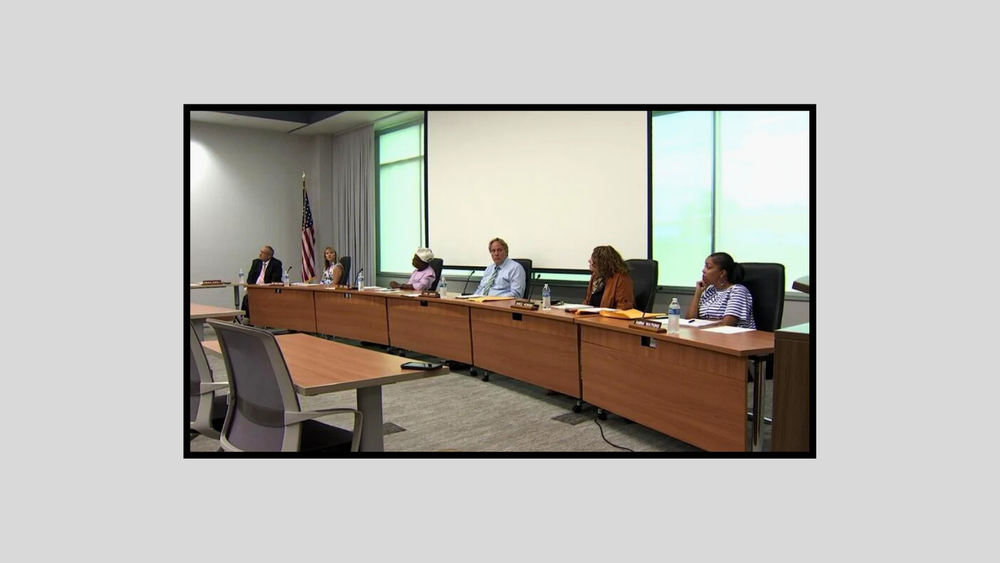By Alexis Barrett, Charity Blanton
The Paducah Sun
July 22, 2025
Used with permission
At Monday’s Paducah Board of Education meeting, representatives with two companies providing school safety solutions demonstrated new, high-tech security measures to be used in the district’s schools, including cameras enhanced with artificial intelligence processing chips and a comprehensive alert system.
The district is one of only four in the nation using the Vicon Anavio camera system, Paducah Public Schools Director of Human Resources and Districtwide Communications Anne Bidwell said.
Jonathan Rudolph, the vice president of marketing at Vicon Industries, told school board members more about the new security cameras and video platform the district has purchased through Vicon’s partner, Premier Fire & Security.
Rudolph said the cameras have AI processing chips that offer more detail than traditional cameras, including at night or in dark rooms. Anavio, the platform being purchased alongside the cameras, reduces the need to scrub through footage by allowing moderators to flag individuals as “a person of interest.”
“What I can do with that information is actually build very simple automation on the back end and say, ‘If you see that guy again, shoot me a text, shoot me an email,’ ” Rudolph said. “So, instead of waiting until after it happens, now I’m getting a proactive announcement that guy’s here again.”
The program will also allow schools to upload photos of persons of interest so administrators can search to see whether that person has been on a school’s premises. Even if the person hasn’t been there, the individual can still be flagged if they set foot on campus in the future.
Bidwell said the district has invested $1.5 million in approximately 690 cameras, which will be placed at all schools and departments, as well as outdoor areas, such as the football stadium.
Director of Pupil Personnel Troy Brock and Director of Technology Dale Weaver also demonstrated the Centegix Safety Platform, which allows all district staff to send an internal alert when they need help quickly.
Brock and Weaver detailed the kinds of alerts administrators and school resource officers will be able to send, via either a badge or an app.
The first type of alert is a staff alert, which is for smaller-scale needs. It doesn’t send the school into lockdown or call 911, instead notifying designated responders.
The second type is a building-wide alert, which locks down the school, calls 911 and activates strobes and public address system announcements. It can also make warnings pop up on any computer on the school’s network and provide weather alerts.
Of the district-side projects for the camera system and alert system, Superintendent Donald Shively said, “the focus is on keeping children safe and then also keeping our staff safe.”
“We’ve studied how to do that, looked at the research, and obviously there’s things that you do to prevent anything from happening, but you also have to think of the second side of that, which is response time. And so, these are two things very specifically that will increase response time, whether that’s just from a school administrator or an SRO, a school nurse, over something that’s going on, or if it’s something worse than that, you know, community response teams to that,” Shively said. “It’s essential that we have...safe and orderly learning environments for our children to thrive in."
Also during the meeting, at the request of West Kentucky Community and Technical College President Anton Reece, the board approved three platforms for communication between WKCTC employees, volunteers and students enrolled in dual credit courses: Anthology (formerly Blackboard), Outlook and Starfish. Reece requested approval in order to comply with Senate Bill 181, a new Kentucky law that went into effect June 27.
SB 181 regulates electronic communication among school district employees, volunteers, and students. It mandates the use of designated, traceable communication systems for all school-related communication and says communications outside that system are considered “unauthorized” and will lead to disciplinary action. The new law allows parents and guardians to submit written consent for a designated employee or volunteer to communicate with their students outside of traceable communications platforms. Each consent form applies to one individual. Consent forms are available on the Paducah Public Schools website.
The board also approved the first reading of an amendment to the policy on alternative education. The amendment dictates, in cases of documented threatening or violent behavior, students who “present a plausible danger to other students and/or staff” be placed in alternative school and receive virtual instruction for one year. Placement would be reviewed by the appeals committee and could be extended by one year.
Additionally, the board approved three appointments: Lisa Chappell as board secretary, Angela Copeland as treasurer and Nicholas Holland of Whitlow, Roberts, Houston, and Straub as the attorney of record.

